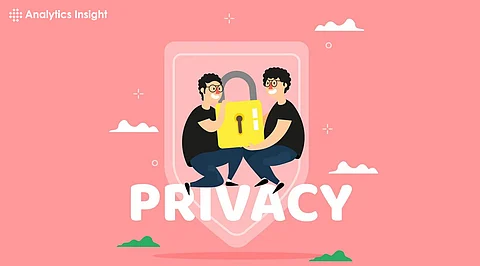

Artificial Intelligence has revolutionized the way people interact with technology. ChatGPT, a prominent AI-powered conversational model, has gained widespread attention for its ability to generate human-like responses. However, concerns about data privacy and security often accompany advancements in such systems. Understanding the security of ChatGPT conversations is crucial for individuals and organizations that rely on it for communication and decision-making.
ChatGPT processes user inputs to generate meaningful responses. When a conversation takes place, the system temporarily stores input data to analyze and produce a reply. The fundamental question lies in how this data is managed and protected.
OpenAI, the organization behind ChatGPT, has established clear policies on data handling. Inputs provided during interactions are logged but not permanently stored in most configurations. However, logs are often retained for system improvement, debugging, and performance analysis. The potential retention of logs highlights the importance of responsible use of sensitive or confidential information during interactions.
ChatGPT has incorporated several privacy-focused features. One notable feature is the option for users to disable chat history. Disabling this functionality ensures that conversations are not stored or used for model training. This approach minimizes the risk of data being retained inadvertently.
For enterprise users, OpenAI offers enhanced privacy configurations. These features include data encryption, user authentication, and customizable retention policies. Such measures cater to businesses that handle confidential or proprietary data, ensuring compliance with industry standards.
Encryption plays a vital role in securing conversations. ChatGPT employs encryption protocols during data transmission. These protocols ensure that inputs and responses are protected against interception or unauthorized access.
When data is transmitted over the internet, it is vulnerable to potential attacks such as man-in-the-middle (MITM) intrusions. Encryption mitigates these risks by encoding the data in transit, making it accessible only to authorized parties. This security layer builds trust for users relying on ChatGPT for sensitive communications.
Like any digital platform, ChatGPT is not immune to cybersecurity threats. The primary concern revolves around potential data breaches. Cybercriminals often target systems that handle vast amounts of data, including conversational AI platforms.
To address this, robust cybersecurity measures are in place. Regular vulnerability assessments and penetration testing help identify and mitigate weaknesses in the system. However, no system is completely immune to sophisticated attacks, which underlines the need for cautious use of AI tools.
AI models like ChatGPT may exhibit vulnerabilities stemming from their architecture. These vulnerabilities can be exploited to extract sensitive information or manipulate responses. Prompt injection attacks, for instance, involve crafting inputs that trick the AI into disclosing unintended information.
To counteract such risks, developers continuously refine the model and apply stringent safeguards. These measures ensure that responses adhere to predefined ethical and security standards. Advanced monitoring systems are also deployed to detect and prevent malicious activity.
Adherence to global data protection regulations is essential for platforms like ChatGPT. OpenAI ensures compliance with laws such as the General Data Protection Regulation (GDPR) and the California Consumer Privacy Act (CCPA). These regulations mandate transparency in data handling, user consent, and the right to data deletion.
GDPR-compliant systems allow individuals to request the deletion of their data from the platform. This feature empowers users to maintain control over their information, reinforcing trust in the system.
ChatGPT is used in diverse scenarios, ranging from personal queries to professional applications. Each use case presents unique security considerations.
Healthcare: When used for medical queries, maintaining the confidentiality of health-related information is critical. HIPAA compliance is necessary when handling such data.
Customer Support: Businesses employing ChatGPT for customer support must ensure that client information remains secure. Unauthorized access to such data could lead to reputational and financial damage.
Education: In academic settings, ensuring that interactions do not violate intellectual property or plagiarism policies is essential.
Awareness of these risks helps users implement appropriate safeguards during usage.
While developers implement advanced security measures, users also play a role in maintaining the confidentiality of conversations. Avoiding the inclusion of sensitive personal, financial, or proprietary information in inputs minimizes exposure to potential risks.
Implementing strong passwords and using secure devices adds an additional layer of security. Regularly updating software and adhering to best practices in cybersecurity further enhances safety during interactions.
The ethical handling of data is a significant aspect of ChatGPT's security framework. Developers are committed to preventing misuse of the platform for malicious activities. Strict policies against generating harmful or misleading content align with ethical standards.
Transparency in data usage is another ethical consideration. Users must have a clear understanding of how their inputs are processed and retained. OpenAI provides detailed documentation to ensure that individuals and organizations are well-informed about these practices.
ChatGPT aligns with industry best practices to maintain a secure environment for its users. These include:
Data Minimization: Collecting only the necessary information to fulfill a query reduces the risk of data exposure.
Access Controls: Restricting access to data logs and implementing role-based permissions ensures that only authorized personnel can view or modify information.
Incident Response: A robust incident response plan enables quick detection and resolution of security breaches.
Adhering to these practices enhances the overall security posture of the platform.
As technology evolves, so do the challenges associated with securing conversational AI platforms. Future advancements aim to address existing limitations and enhance user trust. Developments such as on-device AI processing eliminate the need for transmitting data to external servers, reducing vulnerabilities.
Improved encryption algorithms and real-time monitoring systems are likely to be integrated into future versions of ChatGPT. These innovations will fortify the platform against emerging threats, ensuring that conversations remain private and secure.
The security of ChatGPT conversations relies on a combination of robust technical measures, compliance with regulations, and ethical considerations. While the platform has made significant strides in safeguarding data, the evolving landscape of cybersecurity demands constant vigilance. Users and developers must work together to maintain a secure and trustworthy environment for AI-driven interactions. By understanding the mechanisms in place and adopting best practices, the risks associated with conversational AI can be effectively mitigated.
